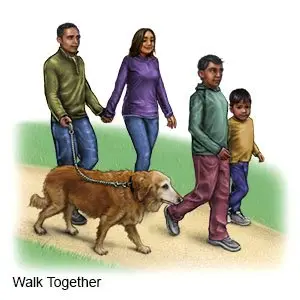What do I need to know about back pain?
Back pain is common. You may have back pain and muscle spasms. You may feel sore or stiff on one or both sides of your back. The pain may spread to your lower body.
What increases my risk for back pain?
- A condition that affects your spine, joints, or muscles, such as muscle tension or disc problems
- Repeated bending, lifting, or twisting, or lifting heavy items
- Injury from a fall or accident
- Lack of regular physical activity
- Obesity or pregnancy
- Smoking
- Aging
- Driving, sitting, or standing for long periods
- Bad posture while sitting or standing
How is back pain diagnosed?
Your healthcare provider will ask if you have any medical conditions. He or she may ask if you have a history of back pain and how it started. He or she may watch you stand and walk, and check your range of motion. Show him or her where you feel pain and what makes it better or worse. Describe the pain, how bad it is, and how long it lasts. Tell your provider if your pain worsens at night or when you lie on your back.
How is back pain treated?
- Medicines:
- NSAIDs help decrease swelling and pain or fever. This medicine is available with or without a doctor's order. NSAIDs can cause stomach bleeding or kidney problems in certain people. If you take blood thinner medicine, always ask your healthcare provider if NSAIDs are safe for you. Always read the medicine label and follow directions.
- Acetaminophen decreases pain and fever. It is available without a doctor's order. Ask how much to take and how often to take it. Follow directions. Read the labels of all other medicines you are using to see if they also contain acetaminophen, or ask your doctor or pharmacist. Acetaminophen can cause liver damage if not taken correctly.
- Muscle relaxers help decrease muscle spasms and back pain.
- Acupressure may be recommended to decrease pain and improve movement. Acupressure is pressure or localized massage to the area of your back pain.
- A transcutaneous electrical nerve stimulation (TENS) unit is a portable, pocket-sized, battery-powered device that attaches to your skin. It is usually placed over the area of pain. It uses mild, safe electrical signals to help control pain.
Treatment options
The following list of medications are in some way related to or used in the treatment of this condition.
- tramadol
- Cymbalta
- Aleve
- Voltaren
- Cataflam
View more treatment options
How do I manage back pain?
- Apply ice on your back for 15 to 20 minutes every hour or as directed. Use an ice pack, or put crushed ice in a plastic bag. Cover it with a towel before you apply it to your skin. Ice helps prevent tissue damage and decreases pain.
- Apply heat on your back for 20 to 30 minutes every 2 hours for as many days as directed. Heat helps decrease pain and muscle spasms.
- Stay active as much as you can without causing more pain. Bed rest could make your back pain worse. Avoid heavy lifting until your pain is gone.

- Go to physical therapy as directed. A physical therapist can teach you exercises to help improve movement and strength, and to decrease pain.
Call your local emergency number (911 in the US) if:
- You have severe back pain with chest pain.
- You cannot control your urine or bowel movements.
- Your pain becomes so severe that you cannot walk.
When should I seek immediate care?
- You have pain, numbness, or weakness in one or both legs.
- You have severe back pain, nausea, and vomiting.
- You have severe back pain that spreads to your side or genital area.
When should I call my doctor?
- You have back pain that does not get better with rest and pain medicine.
- You have a fever.
- You have pain that worsens when you are on your back or when you rest.
- You have pain that worsens when you cough or sneeze.
- You lose weight without trying.
- You have questions or concerns about your condition or care.
Care Agreement
You have the right to help plan your care. Learn about your health condition and how it may be treated. Discuss treatment options with your healthcare providers to decide what care you want to receive. You always have the right to refuse treatment. The above information is an educational aid only. It is not intended as medical advice for individual conditions or treatments. Talk to your doctor, nurse or pharmacist before following any medical regimen to see if it is safe and effective for you.© Copyright Merative 2023 Information is for End User's use only and may not be sold, redistributed or otherwise used for commercial purposes.




